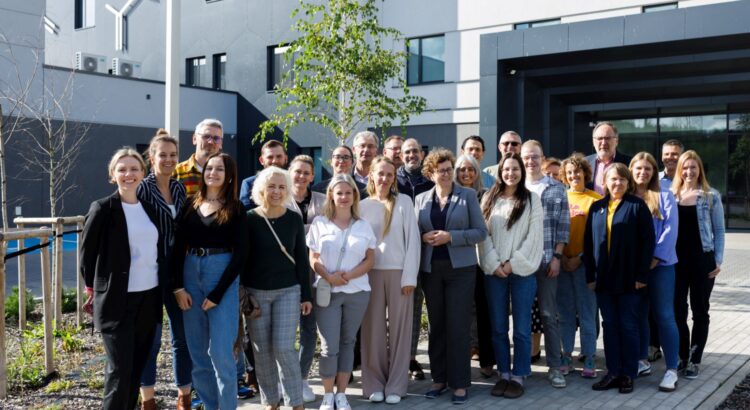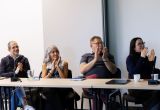Laboratory management and animal testing were the topics discussed by experts from Poland, Portugal, the Netherlands, and Estonia, creating a unique space for the exchange of valuable experiences and good practices. On September 23-24, our Institute hosted an international workshop organized as part of the CROSSPATHS project, which is a program focused on developing international cooperation between scientific units to make better use of investments financed by Regional Operational Programs and to create innovations in the fields of food, health, and bioeconomy.
LAB MANAGEMENT: CHALLENGES
On the first day, participants focused on the challenges facing laboratory managers. After visiting our laboratories, representatives from the Catholic University of Portugal (UCP), the Estonian University of Life Sciences (EMU), and our Institute opened a discussion in which they sought to identify key problem areas faced by laboratory managers. The key challenges include limited budgets, staff shortages, and overuse of equipment. Strategies to address these challenges included strengthening cooperation, improving data management, and defining the unique characteristics of each institution’s offerings. The day concluded with a lecture by Inna Dimova (Innotrope), who introduced participants to the complexities of intellectual property rights in European research projects.
ABOVE ALL, ETHICS
The second day was dedicated to animal welfare. Our experts, Prof. Jerzy Juśkiewicz, who conducts research involving animal testing, and Dr. Radosław Kowalski, Chairman of the Polish National Ethics Committee for Animal Experiments, discussed the ethical aspects of research, alternative methods of in vivo experiments, and the Polish legal framework. Representatives of Wageningen University (WUR) presented innovative projects in the field of sustainable agriculture. The second day was concluded with a study visit to the Institute’s animal facility.
THE 3R PRINCIPLE
The jointly identified laboratory challenges require joint solutions, based on standardization, training, and partnership between institutions. The workshop confirmed the need for participants to continue close cooperation and knowledge sharing, especially within European projects. The discussion on animal testing highlighted the key importance of transparency, ethics, and the application of the 3Rs principle (Replacement, Reduction, Refinement) for obtaining reliable scientific results and social acceptance.
Read more about the CROSSPATHS project here.








































































